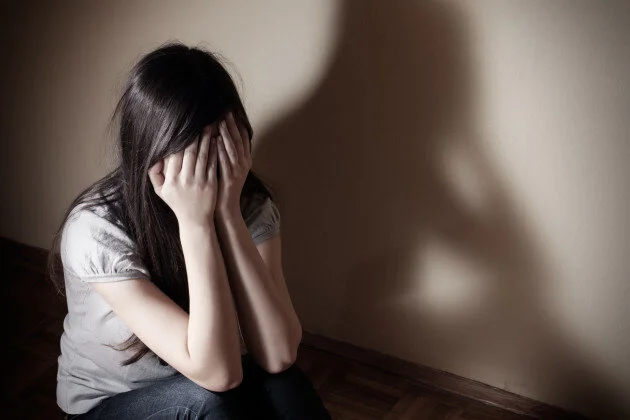
Shame
“Guilt says I’ve done something wrong, shame says there is something wrong with me.”
Shame is a feeling of being unworthy, bad or wrong. Unlike guilt which pertains to things we have done, shame is a feeling about who we are as a person.
Shame can be extremely uncomfortable and because it affects how we see ourselves, it can lead to serious and very long lasting personal difficulties.
Unresolved shame can lead to depression, anxiety and low self-esteem. When coupled with the trauma of early sexual abuse, shame can lead to serious mental health issues.
Living with shame, regardless of the shame’s source, can be a lonely and demoralizing experience.
Toxic Shame
When shame becomes so deeply entrenched into our minds such that almost everything we do is based upon our belief that we are 'damaged' or 'inferior' or 'bad', it is referred to as Toxic Shame. For good reason - Toxic Shame leads to very significant health issues, behavioral problems and relationship challenges.
When we experience momentary shame after something we have done reflects badly on us, we are able to say “Okay, that looked bad. I did not shine, there. Guess I still need to work on that.” but when we take that slip as proof that we are stupid, terrible, bad, broken, etc. then we haved internalized it and it becomes Toxic Shame, capable of causing us serious problems immediately and later in life.
In most cases, shame becomes internalized (or toxic) from chronic or intense experiences of shame in childhood. Parents can unintentionally transfer their shame to their children through verbal messages or nonverbal behavior. For an example, a child might feel unloved in reaction to a parent’s depression, indifference, absence, or irritability or feel inadequate due to a parent’s competitiveness or over-correcting behavior. Children need to feel uniquely loved by both parents. When that connection is breached, such as when a child is scolded harshly, children feel alone and ashamed, unless the parent-child bond of love is soon repaired.
Toxic Shame can also be built based upon someone else's shame. When a parent says something like "what you did makes me look bad" or "your behavior is so embarrasing", a child will internalize that because it was his or her action that resulted in the parent's shame and so they assume they must be 'bad' to have caused that. Most of us carry through our lives the 'expectations' of our families that are based upon shame ('you must not let the neighbors see you in that', 'no-one can find out that you are an addict', 'what do you think people with think of us as parents if you drop out of school?' - the list is almost endless).
It is not surprising, then, that when a child experiences sexual abuse (or other abuses) that they internalize it. They feel they cannot turn to their parents (either because the abuser is related to them or represents adulthood) and so they rationalize the abuse as being because they somehow 'deserved' it or 'encouraged it'. After all, to a young child who has not developed the knowledge to be able to differentiate sexual behavior, the abuse is the 'normal' in their short lives. The brain's natural response to extreme shame is to fall back on flight, fight or freeze and many survivors of Childhood Sexual Abuse talk of being able to 'dissociate' during the abuse (freeze) and separate themselves from what is happening.
Shame and Sexual Abuse
For the vast majority of people, it feels shameful to have had unwanted or abusive sexual experiences. The sense of shame can last long into adulthood, and sadly some people take it with them to the grave.
Boys and men have both similar and different reasons than girls and women do for feeling shame after such experiences. No matter who you are, to be manipulated, used, exploited and harmed in that way can lead to feeling like there’s something fundamentally wrong with you. People often fear that there was something about them that brought on the experiences and the people who subjected them to such experiences often tell them that.
Or a person may feel that, because they’ve had such experiences, something about their very being (as a person, not just a sexual person) has been permanently tainted in a way that decreases their value and how anyone who knows or might learn about it does or would see them.
How shame of Sexual Abuse affects boys / men
The opposite of how men and boys are ‘supposed’ to be
For boys and men, the experience of sexual abuse totally conflicts with how males are supposed to be.
Males are:
not supposed to be dominated, let alone victims
not supposed to experience sexual contact with other males
not supposed to experience vulnerable emotions, especially fear and sadness
not supposed to feel ashamed
Like many feelings that turn on themselves (for example, being frightened of fear, being anxious about your anxiety) having shame about feeling ashamed is a very difficult cycle to break and is capable of rendering a person incapable of functioning (see also Shame Spirals below).
For many males, the shameful sense of not being a ‘real man’ because of what happened is a huge burden in their lives. It affects what and how they think and feel about themselves. It leaves them fearing how others would see them if they knew what happened. Some male survivors say that they believe that others must know (even when they couldn’t ) and as a result see them as ‘not a real man’.
This shame is felt to some extent by just about every man who had unwanted or abusive sexual experiences. Yet it can be overcome, and many have managed to do so.
The belief that a man must be ‘weak’ if he is the victim of Sexual Abuse leads to most male victims not coming forward - the ‘stigma’. The shame.
How shame of Sexual Abuse affects girls / women
Extreme versions of how girls and women are 'supposed' to be
For girls and women, being sexually used or abused is not the opposite of how they’re supposed to be. Instead, it’s a more extreme version of how they’ve been taught and conditioned to behave. It’s a more extreme version of how they’re viewed by others (and may come to see themselves) in a world that’s dominated by men. Even if a girl is too young to understand the perceptions of women, as they mature, they rationalize their past abuse in the same way.
On television shows, in movies and advertising of all kinds, women, even young girls, are presented as objects that exist for the sexual pleasure of men. Girls and women get this message in many other ways too, including leering looks, unwanted sexual comments and other forms of sexual harassment.
All of the stereotypes that are used to describe girls ('Slut', 'Easy', 'Whore', etc.) define her based upon how men observe or experience her sexuality. Females are generally categorized as 'good' (deserving of respect and care) or 'bad' (deserving of exploitation and abuse). In this twisted belief system, some girls and women 'deserve' to be 'taught a lesson' for apparently frustrating men sexually, for acting as if they are 'superior' to men or deserving to be disrespected because of being a 'slut'.
It is no wonder that young victims of sexual abuse cannot make sense of what happened to them, except in terms of 'it must be something I did' or 'I was a bad person'. The tragic reality, then, for a girl or woman to be molested, raped or otherwise sexually assaulted is to experience a more extreme version of something they’re constantly told they are ‘supposed’ to be: passive objects for men’s sexual use and domination. In addition, being sexually assaulted has forcibly put them into a category of ‘damaged goods’ or at least with regard to their value as ‘respectable’ sexual objects for boys and men. This leads to most female victims not coming forward - the 'stigma'. The shame.
“Shame is the most powerful, master emotion. It’s the fear that we’re not good enough.”
The symptoms of shame
Although shame is an intensely personal emotion, it does manifest itself in a few common ways. Those of us that carry a lot of toxic shame will recognize ourselves in some (if not all) of these.
Anger
Anger is one of the most common coping mechanisms for deep shame. Shame makes you feel small and vulnerable, so we make ourselves feel safe by flipping it into the empowering feeling of anger. Some people describe a very fast and intense reaction to certain triggers (being disrespected, humiliated or belittled). When this happens, when anger and shame mix, we create rage (rage is not just strong anger but anger combined/fueled with shame). Rage like this is a defense mechanism, stopping us from living our shame.
Embarrassment
Embarrassment is perhaps the most well-known symptom of shame and most often occurs when we experience momentary shame (i.e. when we do something that we realize may not reflect well on us but we do not internalize it). Generally, we get embarrassed when another person sees something about us that we did not want them to. With Survivors of Sexual Abuse, there can be an overactive sense of embarrassment around anything to do with sex and this is because we associate sex with the shame surrounding our abuse.
Using humor in non-humorous situations
When we find ourselves in situations where we believe our pain or struggle might get exposed to others, our fear of shame convinces us that we should cover up by using humor. In this way we are able to share ourselves without risking exposure of our deeper needs and pain. The link between humor and toxic shame has been understood for some time. Indeed, many of our favorite comedians admit that they use humor to prevent anyone seeing the pain of earlier issues. Sometimes, this leads to deeper depressions and other mental health issues (because the underlying shame is not being dealt with) at which point you may hear people say things like "but they were always making other people laugh".
Shutting down
This is shame's ultimate defence. Someone asks us something or does something and before we know it, we are answering without emotion, and feeling incapable of reaching out - even though we might actually want to, we just can't. This 'shame reaction' affects many of us who carry toxic shame and it is often very difficult to recognize the reaction for what it is - all we know is that in an instant we can dissociate and shut down our emotions. When in the 'shutdown state' we may feel that we are back in our childhood. This reaction takes place in the reactive part of the brain and we do not experience any conscious decision to shut down. See also Shame Spiral below.
Codependence
Codependence is a large subject and is covered elsewhere on our site. Codependence is a set of behaviors that interfere with a person's ability to have healthy, loving relationships. These behaviors include people-pleasing - codependents are the people who put others' needs before their own, which sounds so great, except it’s fueled by a compulsion to put others' needs before their own. Many who struggle with this don’t even feel their own needs or desires anymore. Shame leads us to either lose sight of our own preferences, or belittle them so much that we start thinking they don’t matter and so it becomes easy to put others above our self. This can lead to codependents being more invested in managing someone else's life than their own.
Perfectionism
Perfectionism can be a complicated psychological behavior. When it is driven by shame, it is an attempt to hide WHO the person is by focusing on WHAT they do (be the best Teacher, make the perfect cookies, have a completely clean and tidy house). In other words, because we believe that we are inherently worthless (or broken or damaged or unlikable), we need to divert attention away from who we are as a person and we sometimes do this by striving to be perfect at something(s). We believe that in this way, it is our performance that gains us the respect of others. We can set ourselves incredibly high standards (and not demand the same of others) and the effort to maintain them does, eventually, become emotionally exhausting.
Judging others
It seems odd but shame often presents as an inflated sense of self. Shame itself can be shameful, so people rewrite their identity in a way that erases it altogether but many of those who do this overcompensate and create an identity for themselves that is 'superior' or 'better' than the real identity hiding in shame. Judging others is a way for us to feel better/safer about ourselves. When we have thoughts about being better than others (putting ourselves 'One Up') or put others down mentally (put others 'One Down') we are trying to make us feel better about ourselves. Doing this may be an indicator of deep shame.
This is not a definitive list of every way that shame manifests itself in our lives. These are commonly documented symptoms but only by understanding what guides our own behavior, can we start to identify the shame that may lie beneath it and the trauma that may lie beneath the shame. Courageous Survivors does not attempt to 'diagnose' shame - our purpose here is to provide a resource and if you are experiencing issues related to shame and/or abuse, it is important to consult with a professional who is trained to help you understand and manage shame.
“Shame corrodes the very part of us that believes we are capable of change.”










